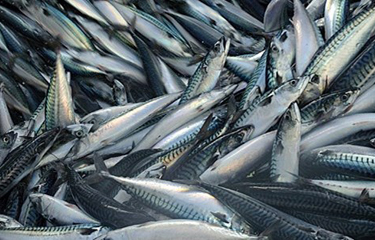The Marine Stewardship Council (MSC) is calling on coastal states that harvest Northeast Atlantic mackerel to secure a long-term quota-sharing agreement as the deadline to make a decision approaches.
A number of fisheries in the North Atlantic have had their MSC certifications suspended due to coastal states in the region failing to set quotas low enough to align with scientific advice from the International Council for the Exploration of the Seas (ICES). North Atlantic mackerel was one of the species that lost MSC certification due to ongoing management issues.
ICES has recommended that for 2023, the catch of Northeast Atlantic mackerel should be no more than 782,066 metric tons (MT), a 1.6 percent reduction from 2022.
While the ICES recommendation has dropped 1.6 percent, coastal states were not in line with the recommendations in 2022. The North Atlantic Pelagic Advocacy Group (NAPA), a group of retailers established to push for coastal states to fix the issues with the fisheries in the region, pointed out that the total allowable catch for North Atlantic mackerel was set at 1,131,416 MT in 2022. That means coastal stats need to agree to a 31 percent cut in quota to align with current guidance.
Coastal states are meeting to secure a long-term quota sharing agreement by 31 March, 2023 – and MSC is urging that the states meet the ICES recommendations. It is also calling for harvest control rules for the fishery, so that managers can ensure long-term sustainability for the stocks.
In the absence of this framework, nation-states have been able to set total allowable catches in line with their own national interests, rather than following internationally set limits defined by the International Council for the Exploration of the Seas, the MSC said.
“This is a fundamental reason why mackerel lost its MSC certification in 2019, with blue whiting and Atlanto-Scandian herring following in 2020.”
The more than 40 retailers that make up NAPA have made sourcing statements regarding the current problems with the mackerel stock as part of a fishery improvement plan – and according to the MSC, the clock is ticking on whether the FIP will be successful.
“With just one year left for these FIPs to be completed, now is a critical moment to secure a quota share agreement in line with science for mackerel, with AS herring and blue whiting following suit,” MSC said.
MSC North Europe Regional DirectorErin Priddle said, all participants in the fishery must secure a deal to protect the future of the stock.
“Without a long-term management plan and agreed quota-share agreement, the risk to the future sustainability of the mackerel stock remains high, even if the stock biomass remains stable,” Priddle said. “We urge coastal-state delegations to raise their ambition in next week’s negotiations and finally put an end to the deadlock that has robbed these fisheries of long-term and lasting sustainable management for over a decade.”
Photo courtesy of Europêche







